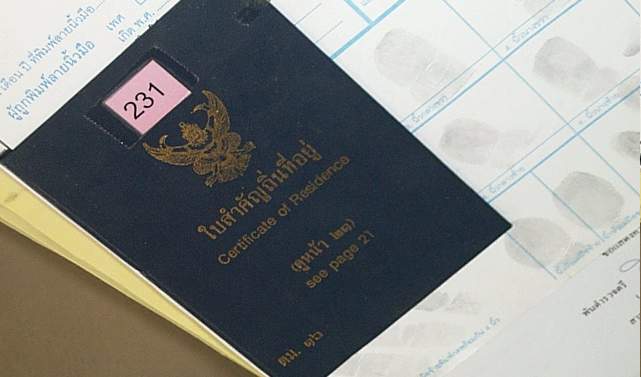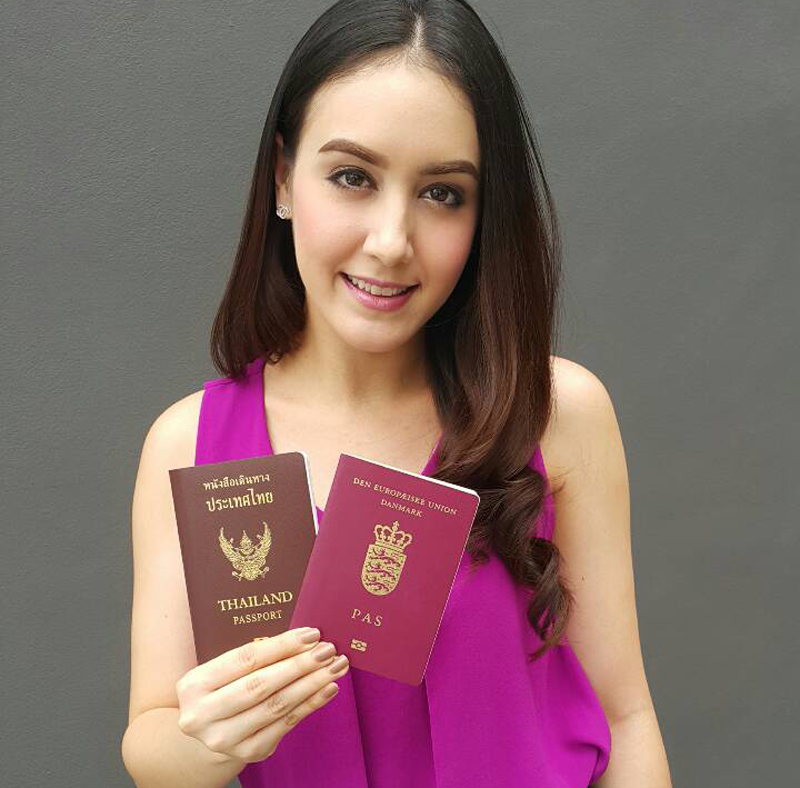Thai law provides an expedited path to citizenship for those who have deep connections to the country through marriage. Put simply, you can apply for citizenship without first having to hold Thai Permanent Residency for five years.
Foreign men married to Thai citizens are biggest category of people who are potentially eligible for Thai citizenship, but often don’t know it, or they think that the requirements are higher than they actually are.
To be sure, this path doesn’t apply to everyone (even if you are married). However, if all of the following points apply, or will apply to you at some point, then you are at the starting point of a realistic and attainable path to Thai citizenship.
- Lived in Thailand consecutively for three years on valid non-immigrant visa extensions;
- Have had three years of consecutive work permits from a Thai based employer;
- Have a minimum income of 40,000 baht per month and have paid tax for three years on that income; and
- Are married to a Thai citizen.
If this isn’t you (i.e. not working in Thailand for a Thai employer, or on a retirement or education visa), then at present current legislation doesn’t provide any realistic paths to citizenship.
If you are working here and planning to stay long term, but not marred to a Thai national, then check out Thai permanent residency, which you can apply for after a full three years of uninterrupted work permits. After holding PR for 5 years, you will then be eligible to apply for Thai citizenship.
If you are a foreign woman married to a Thai husband, then please read this article, as legislation applies differently for the wives of Thai husbands.
What the Legislation Says
The Thai Nationality Act (2008) states:
Section 10:
An alien who possesses the following qualifications may apply for naturalization as a Thai:
(1) becoming sui juris in accordance with Thai law and the law under which he has nationality;
(2) having good behavior;
(3) having regular occupation;
(4) having a domicile in the Thai Kingdom for a consecutive period of not less than five years till the day of filing the application for naturalization;
(5) having knowledge of Thai language as prescribed in the Regulations.
Section 11:
The provisions of Section 10 (4) and (5) shall not apply if the applicant for naturalization as a Thai;
….
(4) is a husband of a person with Thai nationality.
Interpreting the amendments
The changes made to the Thai Nationality Act in 2008 have opened an easier and expedited path to foreign men who are married to Thai citizens. The key ‘shortcuts’ are outlined in Sections 11 of the Act above and in plain english mean:
- Having permanent residence in Thailand is no longer required – so you are eligible after 3 years living in Thailand
- You are exempted from singing the Thai national anthem or the Royal anthem (Sansoen Phra Barami/สรรเสริญพระบารมี)
Although Section 11 refers to waving the Thai language requirement, in practice this has meant that the singing portion of the test isn’t applied to those married to Thai’s. Speaking Thai is certainly useful as far as the points test goes, and it be used to further boost your overall score which will determine your eligibility.
So this is me, what do I do next?
Married to a Thai citizen, three years work permits, tax returns and earning more than the 40,000 baht per month income – you are all of these. So what are the next steps?
Applications for Thai citizenship are made via the Royal Thai Police Special Branch rather than immigration. The full details of how you can do this all yourself are contained in this following article titled ‘Thai citizenship application process’.








Hi, my name is jeffy. I’m from India.. so India doesn’t support dual citizenship. After marrying my thai girlfriend can I stay in Thailand or is there some process just to applying for staying in Thailand.. I understand that getting thai citizenship takes long time but is there any application process for just staying after registering marriage with thai national?
Hi there – once you get married you have to extend your stay annually based on being married to a Thai national. I believe that requires you to keep 400,000 baht in the bank at all times to extend based on marriage.
You can’t automatically work here. You will need to get a job offer from a thai company who is willing to support sponsoring a work permit for you.
Given India doesn’t allow dual nationality, the best you can do in Thailand is to aim for permanent residency. Once you’ve been working continuously for three years with no breaks in work permits between jobs, paying tax etc, you can apply for PR for being married to a Thai citizen so long as you have a 30,000 baht per month minimum income. That article is outlined below. https://www.thaicitizenship.com/the-ultimate-guide-to-thai-permanent-residence/
Thanks so much for your help.. but to register my marriage in Thailand.. What are the certificate I need to register my marriage in Thailand?.. I have one big doubt is that the need to submit single status certificate.. I searched everywhere but can you help me where I can get the single status certificate in India..?? Can I get the single status certificate in Indian embassy in Bangkok??
Hi Jeffy – unfortunately I’m not an expert on visa issues and I don’t really know the processes of the Indian embassy here. So you should go and check this out for yourself.
Hi,
My name is Linh, a Vietnamese. I will get married with my Thai girlfriend. So I just wonder that after the marriage and I apply for Thai citizenship, can I still keep Vietnamese citizenship and have dual citizenship or I have to cancel my Vietnamese citizenship first.
Hi there – thanks for your question. I don’t know how VN law works on this, but as part of the application process you will need to notify the Vietnamese embassy of your intentions.
Hi,
VN law accepts Vietnamese to have 2 citizenships. But I don’t know if Thai law accepts the foreigner who get married with Thai wife have 2 citizenships in Thailand or not?
Thailand is fine for you to keep both nationalities.
My name is Inderjeet singh i m from india I m live in thailand after 12 years and married with thai girl almost 9year and i have two children 1 boy 1girl and my child is thai citizen and my wife open shop and i m work in my wife shop i have work permit 4year and my salary is 35k i paid income tax and i have pink id card and yellow residence please help me for thai citizen ship
Can i apply now?
Hi there – thanks for your question.
On the face of it, you appear to now qualify so worth going to chat with police special branch in your province. The article below outlines the main steps for your knowledge.
https://www.thaicitizenship.com/category/thai-citizenship/application-process/
I LOVE your website and useful advice. Like many, I have been ‘drawn to’ a certain other forum that attracts (and appears to encourage) bitter sexpat know-it-alls who are never wrong. Saying that, a kind member of that forum led me here.
Anyway, I’m chewing through your pages to get my bits in order, but I would like to know how important the 40k/month taxable is. The company I have worked at for 24 years declares that I earn 35k/month. I could ask them to increase this declared amount to 40k for the next three years, but if this number isn’t ‘set in stone’ I could realistically apply for Thai citizenship almost immediately.
Thanks in advance and keep up the awesome work.
Hi Jamie, nice one – glad you’ve found it!
So the 40K is non-negotiable, you’ll need it for the entire time. Also make sure you are including any bonuses, allowances and what not, as they are all income as they may bump you up without you knowing.
Your points however will be dictated by the income in the year immediately preceding your application so if you want to get more points for income, then its useful to have as high as income as possible in that final year – if that makes sense.
All the best
TC
Hi,
I have a worked in Thailand for 3 years now and Married a Thai girl for the last 4 months and currently working in Thailand . Am I still eligible for citizenship? Or should I wait for 3 more years to apply
You need to be married for three years (one year with a child) before you are eligible to skip PR and apply for citizenship. At the time of application, all the other qualifications need to be there too (work permits, taxes, income etc.
Hope this clears things up for you.